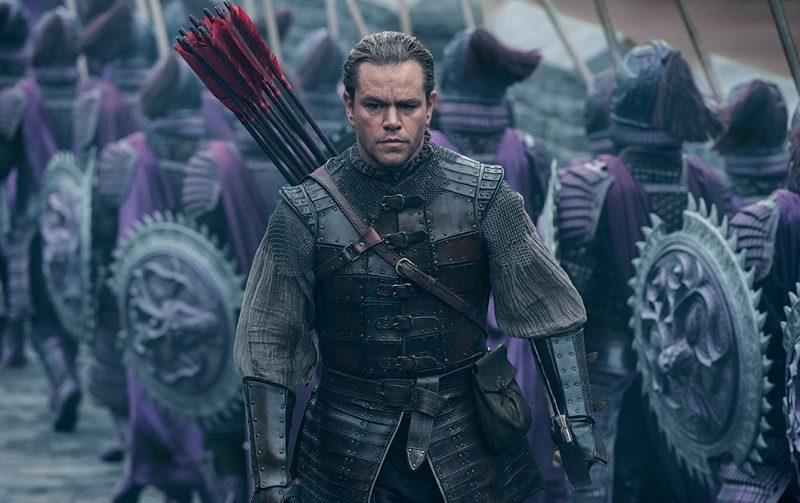
The sci-fi period epic, The Great Wall, sure won’t win Matt Damon an Oscar or deliver the critical praise to which director Zhang Yimou is accustomed.
Early tracking portends a C-plus box office performance for the B-movie about a band of humans protecting civilization from monsters laying siege to the titular Chinese landmark. The Great Wall is expected to finish far behind The Lego Batman Movie, John Wick: Chapter 2, and Fifty Shades Darker when it opens in theaters this weekend.
But in terms of historical importance, the film looms over all its competitors.
That’s because the story is really about building bridges between the U.S. and Chinese film industries, the two largest in the world. And at a time of political unease between the Trump Administration and its Chinese counterpart, there may be a Hollywood ending for the world powers on screen, at least. The $150 million co-production—the largest ever—may be set nearly 1,000 years ago, but it is a template for how tent-pole movies may be made in the future.
“This kind of collaboration sets a milestone in China,” Yimou told RealClearLife through a translator last October. “If this movie succeeds, it’s going to benefit the Chinese and American film businesses.
“It’s going to create a new opportunity to collaborate together and we’re going to work much more closely together in the future.”
Even before the film was released, it got off to a rocky start: When the first trailer was released in August, social media erupted with charges of “white washing” for the prominence given to Damon’s character, a Western thief who is conscripted in the fight against the creatures.
“Our heroes don’t look like Matt Damon,” Fresh off the Boat star Constance Wu fumed on Twitter at the time, accusing the movie of “perpetuating the racist myth that only a white man can save the world.”
The truth behind The Great Wall, however, is that while Damon is the face on the posters, it’s because that was very much the intention of the Chinese company financing the film, Dalia Wanda Group, which bought Legendary Entertainment in 2016. This is a siege movie, all right—the siege of the hearts and minds of American audiences. It’s the first English language movie for Yimou, the acclaimed director of Hero and Raise the Red Lantern, who employed an army of 100 translators to work with his international cast. The screenwriters are all Westerners. The female lead, Tian Jing, is Chinese, while Beijing pop-superstar Lu Han and Hong Kong action movie veteran Andy Lau have supporting roles.
Movie studios on this side of the Pacific have been trying to tap the Chinese market for years: Furious 7 earned $390 million there and $353 million in the U.S. Something may have been lost in translation this time —the film earned a good, but not epic $170 million to date in China, where it was released earlier—but the legacy of The Great Wall is still being written.
—Ethan Sacks for RealClearLife
This article was featured in the InsideHook newsletter. Sign up now.